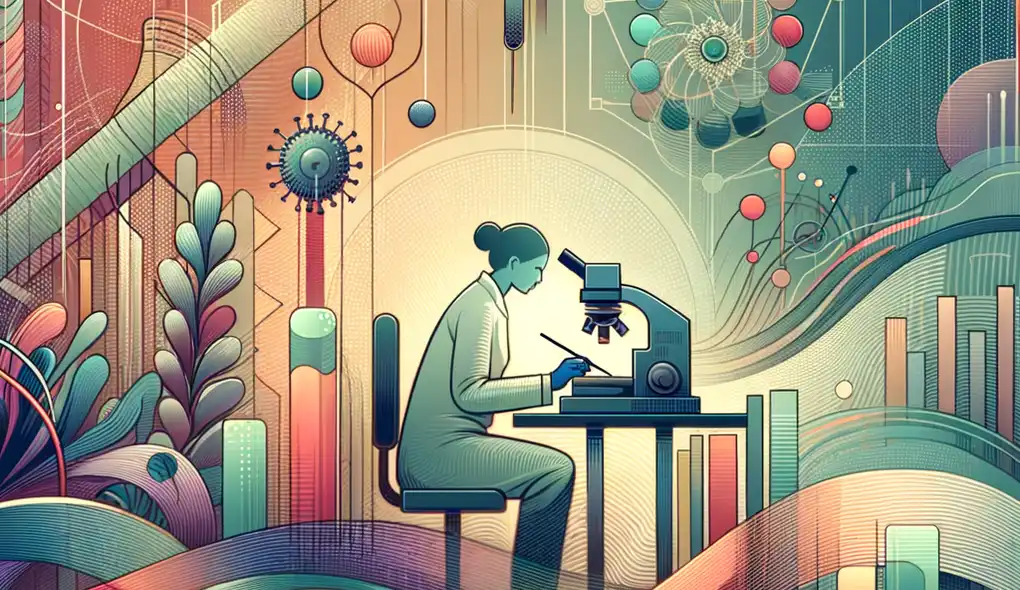What is your approach to interpreting complex datasets?
Microarray Analyst Interview Questions
Sample answer to the question
My approach to interpreting complex datasets involves a systematic and methodical process. Firstly, I thoroughly review the dataset to understand its structure and variables. Then, I clean and preprocess the data to ensure accuracy and consistency. Next, I apply statistical analysis techniques to uncover patterns and trends within the dataset. I use data visualization tools to present the findings in a clear and visually appealing manner. Additionally, I pay great attention to detail and meticulously validate the results to ensure their reliability. Throughout the process, I maintain clear and accurate documentation of my methods and conclusions.
A more solid answer
In approaching the interpretation of complex datasets, I begin by conducting a thorough analysis of the dataset's structure and variables. I then apply my expertise in bioinformatics analysis to clean and preprocess the data, ensuring its accuracy and consistency. To uncover meaningful insights, I utilize a range of statistical analysis techniques, such as regression analysis and clustering algorithms. Furthermore, I leverage data visualization tools, such as R and Python, to present the results in a visually compelling manner. Throughout the process, I pay meticulous attention to detail to ensure the reliability of my findings. For example, I validate my conclusions by comparing them with existing research or performing independent experiments. By maintaining clear documentation of my methods and results, I facilitate reproducibility and collaboration with other team members.
Why this is a more solid answer:
The solid answer expands on the candidate's approach to interpreting complex datasets by providing more specific details and examples. It highlights their expertise in bioinformatics analysis, statistical analysis proficiency, data visualization, and attention to detail. The answer also demonstrates the candidate's ability to validate their findings and collaborate with other team members. However, it could still be improved by incorporating additional information on the candidate's experience with microarray technology and experimental design.
An exceptional answer
Interpreting complex datasets requires a multifaceted approach that I have honed throughout my extensive experience as a Microarray Analyst. Firstly, I meticulously review and analyze the dataset's structure, identifying variables of interest and potential challenges. Then, I employ advanced bioinformatics analysis techniques, leveraging my proficiency in R and Python, to preprocess the data and remove any noise or biases. To derive meaningful insights, I utilize a combination of statistical methods, including differential gene expression analysis, pathway enrichment analysis, and network analysis. Moreover, I have a keen eye for data visualization, using tools like ggplot2, to create compelling visual representations that effectively communicate complex findings to diverse audiences. In addition to these technical skills, I meticulously validate the accuracy and reliability of my results by cross-referencing with existing literature and performing independent verification experiments. My strong attention to detail ensures that no anomalies or potential artifacts are overlooked. Furthermore, I actively collaborate with researchers and biologists, incorporating their domain knowledge in the interpretation process. By fostering effective communication and presenting my analyses in clear and concise formats, I provide valuable insights that drive decision-making and enhance research endeavors.
Why this is an exceptional answer:
The exceptional answer presents a well-rounded approach to interpreting complex datasets, showcasing the candidate's extensive experience and proficiency in the key evaluation areas. It highlights the candidate's expertise in advanced bioinformatics analysis techniques, statistical methods, data visualization, and attention to detail. The answer also demonstrates the candidate's ability to validate their findings through literature review and independent experiments, as well as their collaboration and communication skills with researchers and biologists. Overall, the exceptional answer provides a comprehensive and compelling response to the question, aligning with the requirements of the Microarray Analyst role.
How to prepare for this question
- Familiarize yourself with the fundamentals of bioinformatics analysis, statistical analysis techniques, and data visualization tools.
- Stay updated with the latest advancements in microarray technologies and data analysis methods.
- Gain hands-on experience with microarray technology and experimental design through relevant projects or internships.
- Practice interpreting complex datasets by working on sample datasets and presenting your findings to others.
- Develop strong attention to detail and meticulous documentation skills to ensure the reliability of your analyses.
- Improve your communication and presentation skills to effectively convey complex data to diverse audiences.
What interviewers are evaluating
- Bioinformatics analysis
- Statistical analysis proficiency
- Data visualization
- Attention to detail
Related Interview Questions
More questions for Microarray Analyst interviews